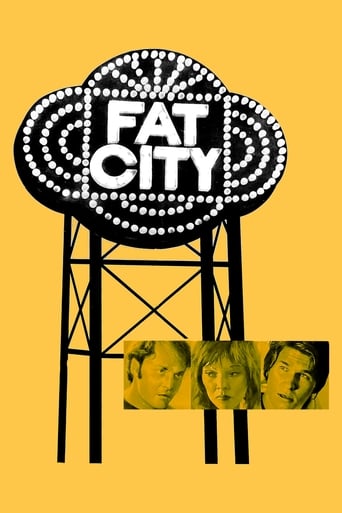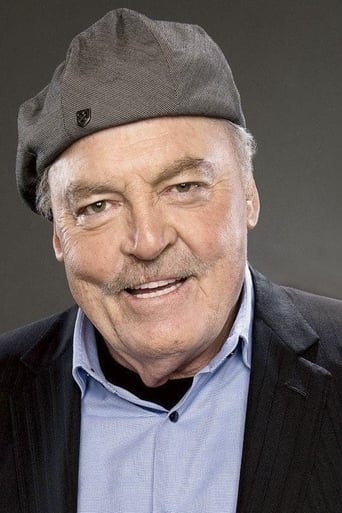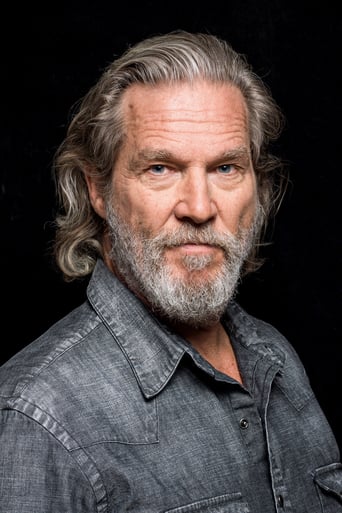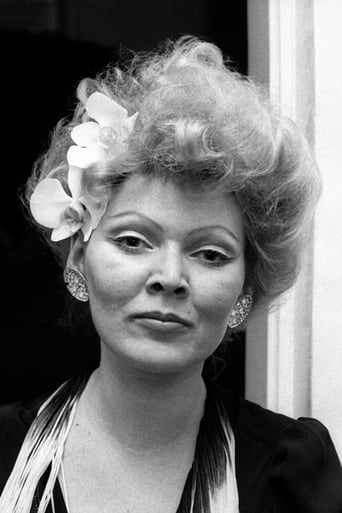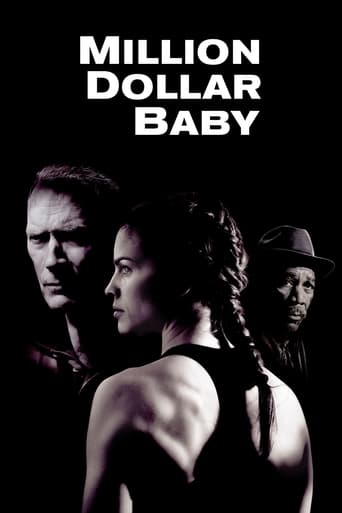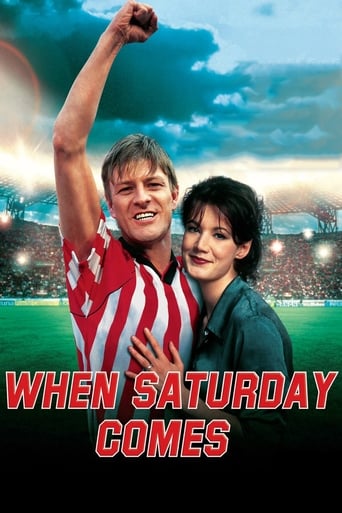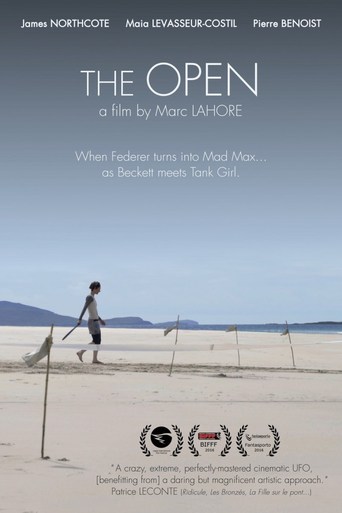Fat City (1972)
Two men, working as professional boxers, come to blows when their careers each begin to take opposite momentum.
Watch Trailer
Cast
Similar titles



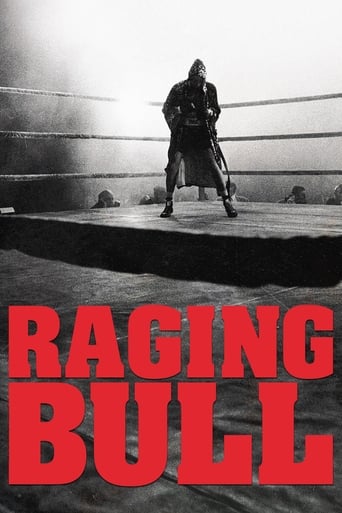
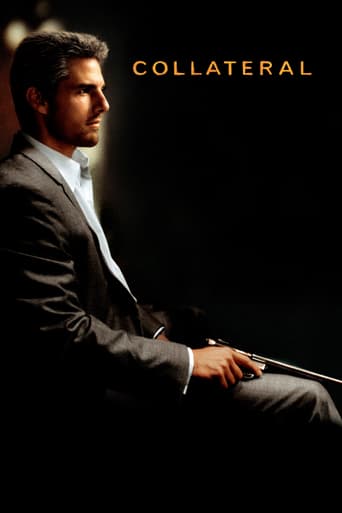
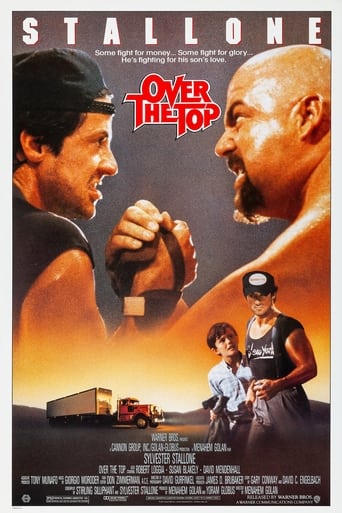
Reviews
Pretty Good
It’s fine. It's literally the definition of a fine movie. You’ve seen it before, you know every beat and outcome before the characters even do. Only question is how much escapism you’re looking for.
A great movie, one of the best of this year. There was a bit of confusion at one point in the plot, but nothing serious.
Actress is magnificent and exudes a hypnotic screen presence in this affecting drama.
Glancing with a documentary eye, John Huston's FAT CITY opens with Kris Kristofferson's lugubrious HELP ME MAKE IT THROUGH THE NIGHT to accommodate to a downbeat tonality, and concomitantly fills the screen with montages of the story's locale and denizens, a rundown California town called Stockton in the 50s, and then introduces Billy Tully (a cleft-lipped and hair- receding Keach), a divorced, childless peckerwood and former boxer on the brink of turning 30, doing odd jobs from hand to mouth, he aspires to return to the ring, but both physically and mentally he hasn't been conditioned to reclaim his glory. Meantime, a young stud Ernie Munger (Bridges), recommended by Billy, starts his professional boxing days but is he really the "one in a million" material which Billy sees in him? The script is penned by the author of its source novel, Leonard Gardner, which warrants fidelity to a large extent but also leans more on Billy than Ernie in the narrative. The boxing scenes, to the lights of a pugilism outsider, are less vicarious and impactful than its more famed cinematic cousins and sometimes one can discern they are playacting, both Keach and Bridges are not toned up in a pro's shape, but that might be the case here, Billy is over the hill, and the allusive reason behind his hard-earned victory is more due to his opponent's deteriorating health than his own prowess. As for Ernie, he loses both two matches presented on-screen and has a soft belly which both literally and metaphorically implies that he is a younger version of Billy, getting married out of onus rather than love, the road ahead of him looks glum, and it speaks volumes in the final close- up where the two boxers sitting sipping their coffee in concert but inside they are miles away from each other (Billy is a lush Ernie tries to avoid), without obvious effort of fumbling for words, that silent moment could be the only time they share before parting company for keeps, no matter how similar their trajectories will be, both Keach and Bridges (at a tender age of 23) are extraordinary players of conveying connotations and embodying nuances. A boisterous Susan Tyrell snatches an Oscar nomination for her terrific turn as Oma, a barfly who strikes a romantic relationship with Billy, but she is a damaged goods through and through, married twice before, habitually drenched in the hard stuff, Billy might be merely a fling to her while her current lover is in the jug. The two-handers between them are coruscating with sheer communion (in the seedy bar where they engages themselves from small talk to wearing their affectionate hearts on their sleeves), or blistering intensity (in their equally mangy bedsit where Huston pulls off the most kitchen-sink spat in the American map), she is an attainable lure for a rough diamond like Billy, but she will do him no good, and the vicious circle will never cease to repeat, time and again, because loneliness brings people together but it takes a helluva luck to be able to stick together.In a word, FAT CITY is on the top rung of Huston's corpus, a strangely disconsolate but whole- heartedly candid social critique of the stagnation and cul-de-sac facing by the have-nots, bestowed with a sublimely subdued texture with unobtrusive dexterity, but as a boxing drama, it still looks rough-hewn and conspicuously pulls its punches in terms of veracity.
This is a magnificent movie. Simply magnificent. With a very simple, minimalistic plot John Huston succeeds in creating a story which you can not abandon and on the contrary await avidly to see scene after scene. And, let alone the extraordinary direction (and photography: only a shadowy hint of Edward Hopper, where one risked to have tons of it), the magic is done by the actors. All, all, all of them, but particularly (and obviously) Stacy Keach, Jeff Bridges and Susan Tyrrell. This last one is simply fantastic in her portrayal of the desperate, solipsist boozing woman. Bridgse is my favorite actor after Dustin Hoffman, but I had never seen him so young and yet a perfectly accomplished actor. And Keach well, tell me I am dumb, but I didn't even know him. When I look at a DVD I like to stop near the middle and begin again from that point the day after. So, with this movie I spent two splendid evenings. Depressing movie, I read somewhere. No, no way. I will look at it again
When he wrote his only novel, 'Fat City' (Farrar, Straus & Giroux, 1969), ex-boxer Leonard Gardner wrote about two things he knew intimately: his hometown of Stockton, California and the fight game. A taut, gripping tale of broken dreams, 'Fat City' won high praise from critics and fellow writers (e.g., Joyce Carol Oates and Joan Didion) and was nominated for the National Book Award. The book also attracted the attention of director John Huston. Amateur lightweight boxing champion of California in his youth and a life-long aficionado of the sport, Huston could truly appreciate the novel's authenticity and power. He purchased the screen rights, hired Gardner to covert his novel into a screenplay, and tried to interest Marlon Brando in playing the lead role (when Brando equivocated, Huston looked elsewhere.). Filmed on location in Stockton's skid row by Conrad Hall ('In Cold Blood'; 'Butch Cassidy and the Sundance Kid'), 'Fat City' focuses on two small-time boxers, one just starting out and one at the end of his "career." In the latter category is Billy Tully (Stacey Keach), a thirty-year-old alcoholic has- been, eking out a living as a farm laborer, but unwilling to forsake his delusions of a boxing comeback. His sparring partner and protégé is Ernie Munger (Jeff Bridges), a 19-year-old with limited talent but big dreams. The characters and early plot trajectory point to a cliché Rocky-like underdog redemption story, i.e., after a slow start, Ernie, with Tully's expert tutoring, should steadily develop until he has a shot at the big time. But 'Fat City' is not "Hollywood"; Ernie is repeatedly pummeled in the ring and his career goes nowhere. Nor do Tully's fortunes improve. Egged on by his barfly girlfriend, Oma (Susan Tyrell), Tully wallows in drunken sloth, at least until a fight opportunity arranged by his longtime coach, Ruben (Nicholas Colasanto of later 'Cheers' fame), prompts him to get back in shape (temporarily). After a two-year hiatus, Tully does win a final victory in the ring but he wins against an already damaged opponent, movingly played by ex- light-heavyweight Sixto Rodriguez. Reminiscent of Rod Serling's 'Requiem For a Heavyweight' (1962) but less mannered and theatrical, 'Fat City' transcends the boxing genre, moves into the realm of genuine tragedy, and also stands as a scathing indictment of the inane vacuity of American Dream ideology, especially when it is pursued by society's downtrodden. Susan Tyrell's harrowing rendition of a drunken, demented floozy earned her an Oscar nomination. A final note: "Fat City" is jazz musicians' slang for an ideal life situation but athletes' slang for being overweight and out of shape: a title that perfectly captures the ironic distance between dream and reality. VHS (1994) and DVD (2002).
Billy Tully is a broken down boxer approaching his thirtieth birthday, and one day he goes to the gym to work out, when he meets Ernie, a young boxer. He tells the boxer to go see his old manager, and he does. Then Billy goes to a bar, where he meets Oma and Earl. Oma is a loud mouth, and she is drunk. Then Billy goes home and Ernie goes to meet Ruben, Billy's old manager. Ruben sees talent in Ernie, and immediately signs him on.Meanwhile Billy, unable to hold a job, goes out to pick onions, looking for some work. After work, he heads to a bar and meets Oma. Earl has been sent to prison, and she is all alone. They talk for a while and then Billy convinces Oma to let him take her home. They start to live together, and Ernie begins losing fights. Then Billy goes to Ruben, as he has decided he is going to box again.This is an unusual film. Up until now, I've always been able to pinpoint Huston's style, maybe it isn't continuous, but usually I can identify a film as a Huston. This is an exception to the rule. When I was watching this film, I could find no link at all to Huston. The closest cousin to this film's style would be an early Scorsese. It is the grittiest of the gritty, and the whole thing sparkles with 70s grime. It feels nothing like a Huston.In the lead role, Stacey Keach must have known this was his shot, and he plays it like it. His portrait of a down on his luck boxer is intense, especially with his scenes with Susan Tyrell. Their scenes are frighteningly realistic. Keach fills his role with great gusto and life. Billy Tully feels like a real guy, and Keach doesn't make him sympathetic either. No, that job belongs to Jeff Bridges. Bridges is certainly very good, but his character seems very one note.However, his scenes with Candy Clark are well done, and he is certainly a good actor, but Ernie is really a one note guy. Nicolas Colestano as Ruben is excellent, and his manager is full of life. However, aside from Keach, the film's greatest performance comes from Susan Tyrell. She is excellent as Oma, a bundle of nerves who alienates everyone she loves, it's a great performance. Her scenes with Keach are some of the film's best.The film was written by Leonard Gardener, adapted from his own novel. The film isn't breaking any new ground with a story of a down on his luck boxer, but Gardener fills his script with enough interesting scenes to keep it from being tired. The score is good, and the opening song sets the mood nicely. Earlier I spoke about the scenes between Keach and Tyrell as being some of the films' best. That is true, but the films best scene is definitely the ending. It speaks volumes without saying much.The cinematography by Conrad Hall is very spare, shot in brown, dingy hues. It succeeds at showing a world that exists, but no one wants to admit exists. This brings me to Huston's direction. It's very interesting. As I said earlier, the film seems more like it was directed by someone else, but what does that have to say about Huston's direction? Well, for one, it shows exactly how much range Huston had as a director. To compare this to something like The African Queen seems odd, but that they were directed by the same man shows exactly how much talent he had, and how he wouldn't conform to a single genre.The film is certainly very well made, but it can be hard to watch. I don't quite know how to describe it, other than to say that it just feels too gritty and depressing. It gets hard to watch after a while, until near the end. Then there is the film's subject. It is about boxing, so there are scenes were characters box. To be fair, this isn't exactly Raging Bull, so the boxing scenes aren't outstanding. They are well shot, and because you care about the characters, you have some investment with them, but they go on for a little to long and they could have been cut.Overall, this is not a bad film at all. It's quite good actually, but it feels draining despite how excellent the performances are. If you feel like a boxing movie, this is one of the best. If you feel like a Huston, this is about how atypical it gets. If you like a good movie, you're on the right track.Fat City, 1972, Starring: Stacey Keach, Jeff Bridges and Susan Tyrell, Directed by John Huston, 7.5/10 (B+).(This is part of an ongoing project to watch and review every John Huston movie. You can read this and other reviews at http://everyjohnhustonmovie.blogspot.ca/).
